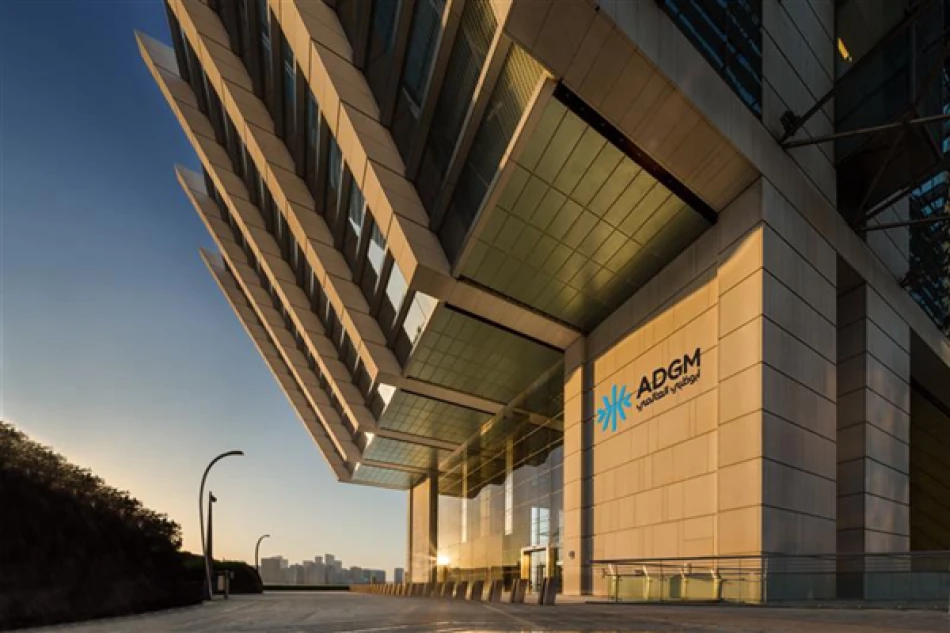
Abu Dhabi Global Market Issues 1,869 New Licenses in First Half of Year
Abu Dhabi Global Emerges as Middle East's Fastest-Growing Financial Hub with 42% Surge
Abu Dhabi Global (ADGM) has cemented its position as the Middle East's largest and fastest-growing financial center, recording a remarkable 42% increase in registered companies during the first half of 2025. With assets under management jumping by the same percentage and over 11,000 active licenses now in operation, the emirate is positioning itself as a serious rival to established financial hubs like Singapore and Hong Kong in the race to capture Asia-Pacific capital flows.
Record-Breaking Growth Signals Regional Shift
The numbers tell a compelling story of rapid expansion. ADGM now hosts 2,972 companies—comprising 308 financial firms and 2,664 non-financial entities—representing a 42% year-on-year increase. More significantly, the center issued 1,869 new licenses in just six months, the highest number since its establishment and a 47% jump from the previous year.
This growth trajectory places ADGM ahead of regional competitors and signals a broader shift in global finance. While traditional hubs like London and New York grapple with regulatory uncertainty and geopolitical tensions, Gulf financial centers are capitalizing on their strategic positioning between East and West.
Asset Management Boom Reflects Institutional Confidence
The 42% surge in assets under management is particularly noteworthy, reaching new heights by June 2025. With 154 asset managers and fund operators now operating 209 funds, ADGM is attracting serious institutional money—a key indicator of long-term viability for any financial center.
This growth mirrors similar patterns seen in Singapore during its emergence as Asia's wealth management hub in the 2000s, when assets under management grew consistently above 30% annually for several years.
Strategic Partnerships Drive Expansion
The expansion isn't just about numbers—it's about quality partnerships that signal institutional maturity. The expansion of Mubadala and Alpha Dhabi's joint private financing venture to $2.5 billion, headquartered within ADGM, demonstrates how the emirate's sovereign wealth apparatus is leveraging the financial center for larger strategic goals.
These partnerships echo the successful model pioneered by Singapore's Temasek Holdings, which used strategic partnerships to establish the city-state as a regional financial gateway.
Market Capitalization Milestone
Perhaps most impressive is ADGM's achievement in market capitalization terms. Companies registered within ADGM and listed on the Abu Dhabi Securities Exchange now exceed AED 500 billion ($136 billion) in total value, making it the largest international financial center in the region by this metric.
This milestone positions ADGM ahead of regional rivals and demonstrates the center's ability to attract substantial, high-value enterprises rather than just shell companies seeking regulatory arbitrage.
Infrastructure and Regulatory Sophistication
The integration of Al Reem Island into the ADGM ecosystem has expanded the workforce to 35,964 employees across both Al Maryah and Al Reem islands. This physical expansion, combined with regulatory enhancements and international cooperation agreements—including a new memorandum of understanding with Kazakhstan's Astana International Financial Centre—shows systematic development rather than opportunistic growth.
Talent Development Strategy
ADGM Academy's commitment to creating 2,900 jobs for UAE nationals in the private sector by year-end, with over 900 positions already filled, addresses a critical challenge facing Gulf financial centers: developing local talent pools capable of supporting sophisticated financial services.
The academy delivered 100 training programs to over 2,600 participants and organized 49 sector-specific events for more than 1,300 attendees in the first half of 2025, indicating serious investment in human capital development.
Implications for Global Finance
ADGM's rapid growth comes at a time when traditional financial centers face increasing challenges. Brexit continues to complicate London's relationship with European markets, while US-China tensions create opportunities for neutral jurisdictions to capture cross-border flows.
The UAE's broader economic diversification strategy, with the non-oil economy growing 9.1% in Q1 2025, provides a solid foundation for financial services growth. Unlike some regional competitors that rely heavily on regulatory arbitrage, ADGM appears to be building genuine economic substance.
For global investors and financial institutions, ADGM's trajectory suggests the emergence of a credible alternative hub in a region that sits at the crossroads of Europe, Asia, and Africa. The combination of regulatory sophistication, strategic location, and government backing creates conditions similar to those that enabled Singapore's rise as a global financial center.
The question now isn't whether ADGM will continue growing, but how quickly it can scale to compete with established global hubs while maintaining the regulatory standards and institutional quality that have driven its initial success.
Most Viewed News

 Layla Al Mansoori
Layla Al Mansoori






